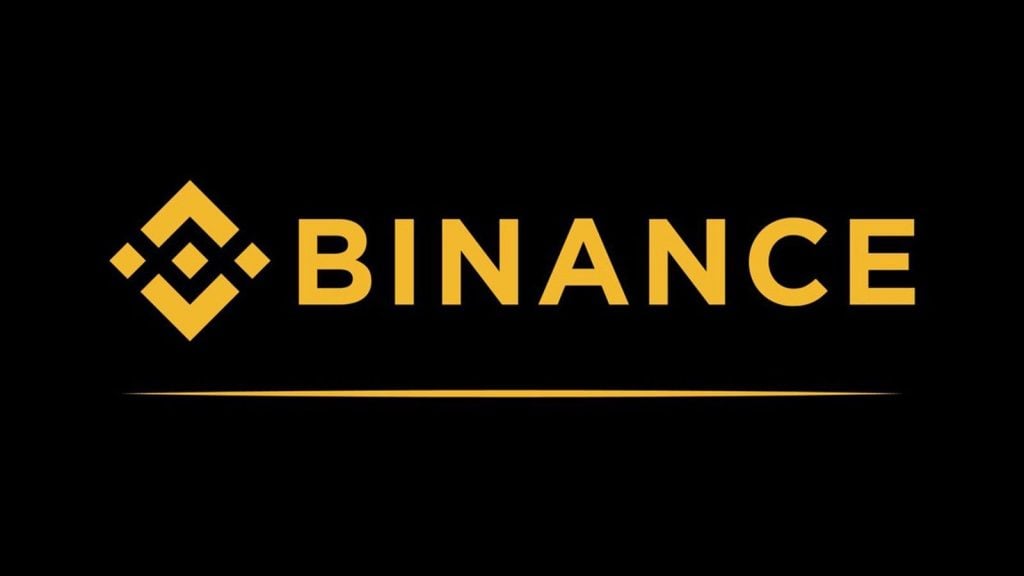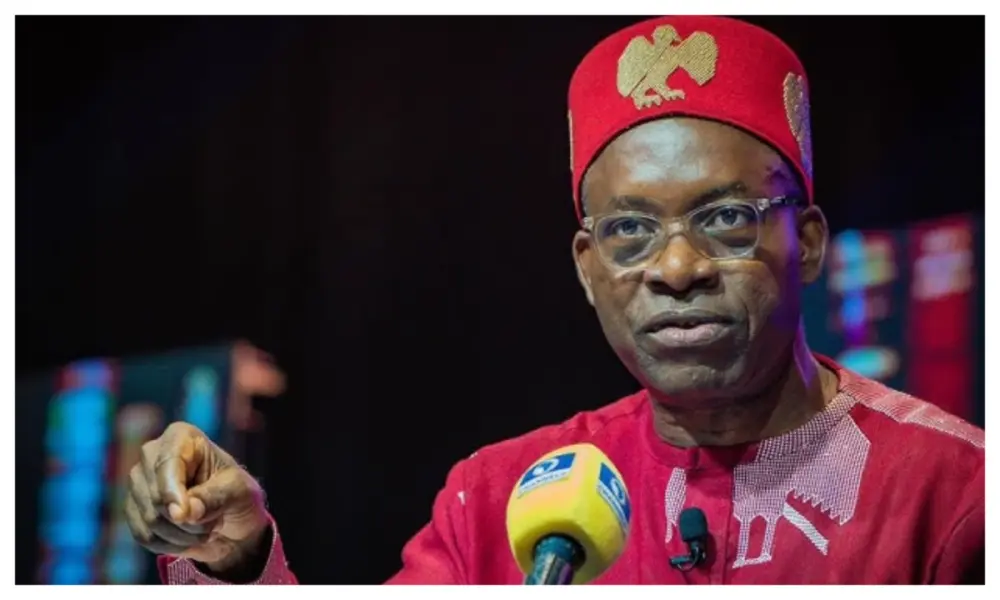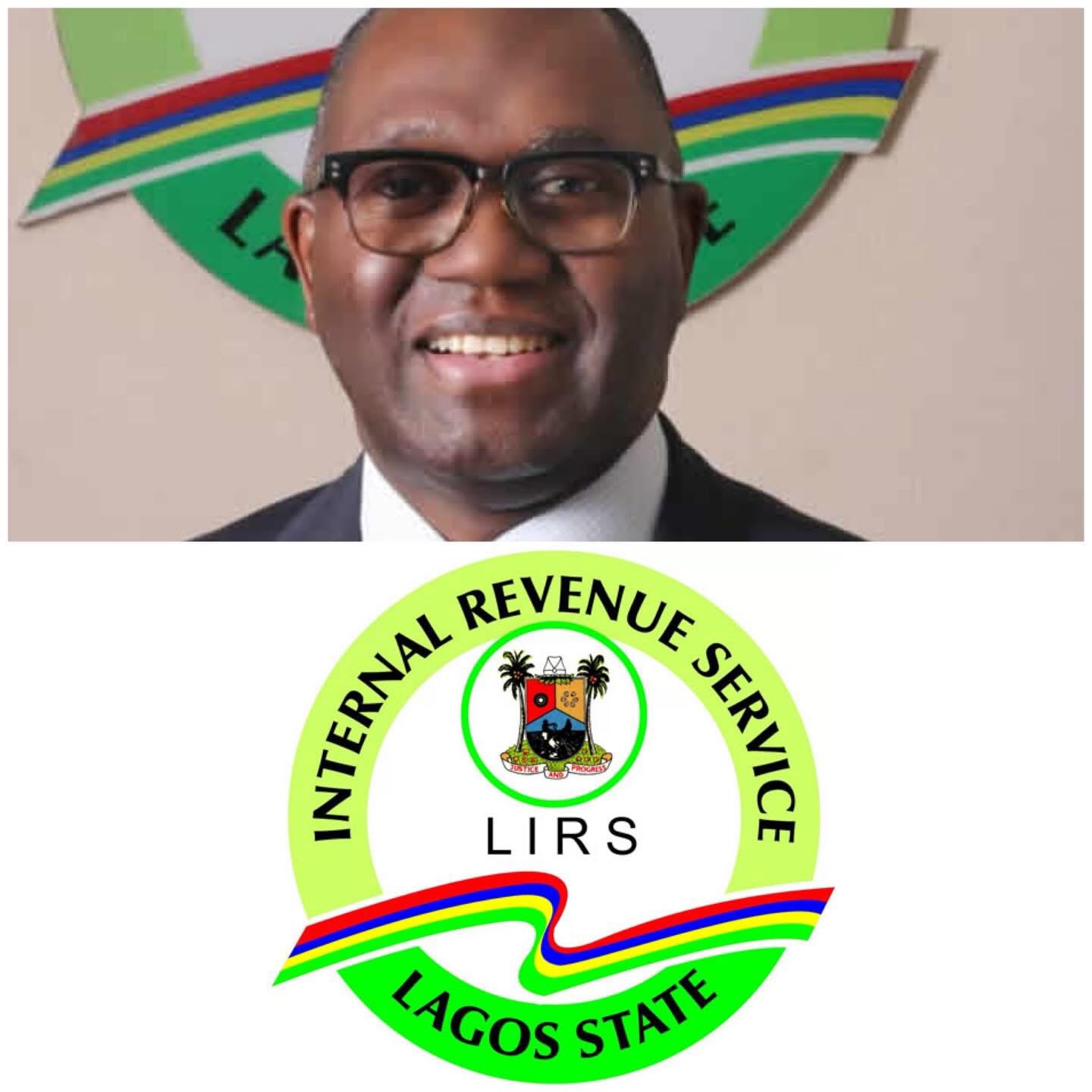Business
Nigerian Govt slams Binance with fresh $81.5bn lawsuit

The Federal Government has asked an Abuja Federal High Court to compel cryptocurrency platform, Binance, to pay N79.51 billion and N231 million, which is equivalent to $81.5 billion, as penalty for alleged economic losses caused by its operations in Nigeria.
The plaintiff, the Federal Inland Revenue Service, in a charge seen by DAILY POST on Wednesday, marked FHC/ABJ/CS/1444/2024, is also seeking payment of $2.001 billion in income taxes for 2022 and 2023.
In the lawsuit, Binance and two of its executives, Tigran Gambaryan and Nadeem Anjarwalla, are accused of contravening Nigerian laws, including failing to register with the country’s tax agency, FIRS, for tax compliance and allegedly causing economic losses to the country during the review period.
Ekwutosblog reports this lawsuit makes it the third lawsuit currently before the trial court against Binance.
The FIRS and the Economic and Financial Crimes Commission had charged the company with tax evasion, money laundering, and foreign exchange violations before Justice Emeka Nwite of the Federal High Court in Abuja.
The monetary claims in the lawsuit include a 10 percent penalty for non-payment of taxes for 2022 and 2023, a 26.75 percent interest rate (the prevailing Central Bank of Nigeria lending rate) per annum from January 1, 2023, and January 1, 2024, respectively, among other penalties.
In the latest lawsuit, FIRS alleged that Binance concealed its business activities in Nigeria, despite having a significant economic presence in the country.
The Federal Government also accused Binance of breaching Nigeria’s Companies Income Tax Act, the Federal Inland Revenue Service (Establishment) Act 2007, the CBN Regulatory Framework for Mobile Money Services, and the CIT Significant Economic Presence (SEP) Order.
The SEP Order, signed by former Finance Minister Zainab Ahmed and gazetted in May 2020, defines significant economic presence as foreign companies deriving at least N25 million annually from digital services in Nigeria.
An affidavit deposed to by Jimada Yusuf, a member of the Special Investigation Team from the Office of the National Security Adviser, revealed that Binance had been operating in Nigeria for over six years without registration.
Yusuf stated that during a 2024 meeting with the Securities and Exchange Commission, Binance executives (Anjarwalla and Gambaryan) admitted to having 386,256 active Nigerian users on its platform, with a trading volume of $21.6 billion and net revenue of $35.4 million for 2023.
Accordingly, the affidavit also accused Binance of operating without required licences and permits, non-compliance with the Money Laundering Act, offering unauthorised financial services, and providing currency speculation services.
The NSA said that Binance unlawfully listed and traded the Nigerian Naira on its platform, even after claiming it had delisted the currency following investigations.
The affidavit also alleges that Binance refused to provide detailed business records spanning six years, despite a Federal High Court order mandating disclosure to FIRS via the EFCC.
The FIRS, represented by lead counsel Kanu Agabi, SAN, was present in court on February 11, 2025, when the suit was called upon for a hearing before Justice Inyang Ekwo; however, Binance’s legal team was absent.
Agabi informed the court that attempts to serve Binance directly had been unsuccessful, and he had filed a motion for substituted service on them.
Justice Ekwo granted the motion and directed that substituted service be carried out within seven days. The case was adjourned to March 3, 2025.
FIRS is seeking the following reliefs in the suit: “A declaration that Binance is liable to pay annual corporate income tax for having a significant economic presence in Nigeria.
“A declaration that Binance and its executives must file income tax returns for 2022 and 2023. An order compelling Binance to pay $2.001 billion in taxes for 2022 and 2023.
“Penalties, including 10 percent annual interest and a 26.75 percent CBN lending rate, until the taxes are fully paid. Compensation of $79.51 billion and N231 million for economic losses.”
The fresh lawsuit came days after Gambaryan, in a statement through his X account, accused Nigerian NSA Nuhu Ribaduand lawmakers in the House of Representatives of bribery and corruption.
However, the Nigerian government described Gambaryan’s allegations as misinformation and defamatory.
Recall that in October 2024, the Nigerian government dropped money laundering charges filed against an executive of Binance Holdings Limited, Tigran Gambaryan.
Business
Soludo takes over Onitsha main market as IPOB declares compulsory sit-at-home

The Governor of Anambra State, Prof Chukwuma Soludo has announced that his government will take over the running of Onitsha Main Market.
The governor had last Monday visited the market and also announced a one week closure over the continued adherence to sit at home protest by traders in the market.
The closure had generated a lot of tension, leading to protests by the traders, while the governor stuck to his gone, insisting that the market will remain closed for one week. He also held a meeting with the leaders of the market yesterday, where he presented them with two options.
Though it was a closed door meeting, which held at the Light House, Awka, a source in the meeting told THISDAY that the traders chose to open their shops on Monday, against an earlier option of demolishing and remodelling the market.
The source said: “The governor gave them two options. The first included; they will resume full trading activities on Mondays, mark attendance as required, while he regenerate and reorganise the market, demolish all illegal structures and plazas and create proper spaces and car parks. The second includes; To continue with Sit-at-Home on Mondays and risk the demolition of the market and use two-years for its reconstruction to restore it to its original master plan.
“The governor told them that restoring parking facilities in Main Market is an emergency, and any illegal structure erected at the park would be demolished soonest.”
It was gathered that the traders choose the first option, which will involve them opening on Monday, and giving the governor the go ahead to remove illegal structures to make way for wider roads in the market and restoring its packing space.
During the meeting, the governor told the traders that a committee will be set up to rectify all occupants of shops in the market, and that this will commence work soon, insisting that the government needs to know those who are trading in its market.
The governor was also said to have rejected a plea for the market to be opened on Saturday, insisting it can only be opened on Monday, when their compliance will again be re-accessed.
“The traders agreed to the terms, and will on Monday reopen the market to recommence business,” the source said.
Meanwhile, secessionist group, Indigenous People of Biafra (IPOB) has declared what it called Biafra-wide solidarity lockdown which is to hold on Monday in solidarity with Onitsha traders and to demand for Mazi Nnamdi Kanu’s immediate release.
A press release by the group’s publicity secretary, Mr Emma Powerful said the total shutdown across Biafraland is a direct, peaceful, and unified response to the shutting down of Onitsha Main Market for one week by Soludo.
The release said: “We remind Governor Soludo and his Abuja sponsors that the Monday sit-at-home originated as a peaceful protest demanding the unconditional release of Mazi Nnamdi Kanu, the very cause that has galvanized global attention to Biafra’s quest for self-determination.
“Attempts to twist this into “economic sabotage” or “criminality” will fail. The markets thrived during Christmas Mondays without incident, proving that voluntary compliance stems from genuine solidarity, not fear. Soludo’s escalation only exposes his desperation to provoke confrontation at a time when Biafra’s international profile is rising and diplomatic efforts are gaining traction.
“On Monday, February 2, 2026, we call on all Biafrans traders, transporters, banks, schools, civil servants, and every sector across Anambra, Abia, Imo, Enugu, Ebonyi, and beyond to observe this solidarity strike peacefully.
“Remain indoors, refrain from all commercial and public activities, and demonstrate to the world our disciplined resolve. This is not about disruption for its own sake; it is about standing with Onitsha traders who are being punished for demanding justice, and reaffirming that no governor can coerce free citizens into abandoning their rights or their solidarity.”
Business
BUA Chairman Is My Ex-Husband – Tinubu’s Minister Opens Up On Past Secret With Abdul Samad Rabiu

Nigeria’s Minister of Art, Culture and the Creative Economy, Hannatu Musawa has opened up about her former marriage to BUA Group chairman Abdul Samad Rabiu, describing it as a meaningful and life-shaping experience.
In a conversation on the MIC On Podcast with Channels Television journalist Seun Okinbaloye, Musawa reflected on her bond with Rabiu, saying their connection has remained strong despite their separation.
She explained that their relationship has evolved into one grounded in family ties, mutual respect, and continued support.
Musawa shared that although they are no longer married, they remain close and involved in each other’s lives.
She also pointed out the lasting connection between their families, noting that her daughter, Khadija, was named after Rabiu’s grandmother, showing the enduring link between them.
The minister described her time with Rabiu as one of the most memorable periods of her life.
She stated that there is no bitterness between them and that she will continue to support him in his endeavors, maintaining respect and care for their shared history.
She said: “We love each other because you love your family, obviously. But Samad is my brother. He’s my family. That’s what he is. And I’m his sister and his family, too. The marriage of the greatest experiences I’ve ever had.
“He is my ex-husband, but we are still family. We juggle coming from a background where, once you’re joined together, you continue to participate in each other’s lives. And so, we were married, and now we are just family.
“My daughter Khadija was named after Samad’s grandmother.
“We continue to share a deep respect and a love, and more than anything, support for each other. I’ll continue to be his greatest cheerleader.”
Abdul Samad Rabiu leads BUA Group, a Nigerian conglomerate with investments in cement, sugar, and other industries, and is regarded as one of the country’s leading business figures.
Business
LIRS reiterates January 31st deadline for employers’ Annual Tax returns filing

The Lagos State Internal Revenue Service (LIRS) has reiterated the statutory deadline of 31st January 2026 for all employers of labour in Lagos State to fulfil their statutory obligation to file their annual tax returns for the 2025 financial year.
In a statement issued on Thursday, January 19, the Executive Chairman of LIRS, Dr Ayodele Subair, reminded employers that the obligation to file annual returns is in accordance with the provisions of the Nigeria Tax Administration Act 2025 (NTAA).
Dr Subair explained that employers are required to file detailed returns on emoluments and compensation paid to their employees, as well as payments made to their service providers, vendors and consultants, and to ensure that all applicable taxes due for the year 2025 are fully remitted. He emphasised that filing of annual returns is a mandatory legal obligation, and warned that failure to comply will result in statutory sanctions, including administrative penalties, as prescribed under the new tax law.
According to Section 14 of the Nigeria Tax Administration Act 2025 (NTAA), employers are required to file detailed annual returns of all emoluments paid to employees, including taxes deducted and remitted to relevant tax authorities. Such returns must be filed and submitted not later than January 31 each year.
Dr Subair stated
“Employers must prioritise the timely filing of their annual income tax returns. Compliance should be part of our everyday business practice. Early and accurate filing not only ensures adherence to the law as required by the Nigerian Constitution, but also supports effective revenue tracking, which is important to Lagos State’s fiscal planning and sustainability.”
He further noted that in Lagos State, electronic filing via the LIRS eTax platform remains the only approved and acceptable mode of filing, as manual submissions have been completely phased out. This measure, he said, is aimed at simplifying and standardising tax administration processes in the State.
Read more in comments section
-
Business1 year ago
US court acquits Air Peace boss, slams Mayfield $4000 fine
-

 Trending1 year ago
Trending1 year agoNYA demands release of ‘abducted’ Imo chairman, preaches good governance
-

 Politics1 year ago
Politics1 year agoMexico’s new president causes concern just weeks before the US elections
-

 Politics1 year ago
Politics1 year agoPutin invites 20 world leaders
-

 Politics1 year ago
Politics1 year agoRussia bans imports of agro-products from Kazakhstan after refusal to join BRICS
-
Entertainment1 year ago
Bobrisky falls ill in police custody, rushed to hospital
-
Entertainment1 year ago
Bobrisky transferred from Immigration to FCID, spends night behind bars
-
Education1 year ago
GOVERNOR FUBARA APPOINTS COUNCIL MEMBERS FOR KEN SARO-WIWA POLYTECHNIC BORI













